The Mortal Storm (1940)
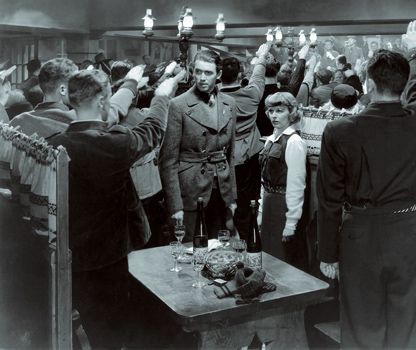
Toronto Film Society presented The Mortal Storm (1940) on Sunday, April 24, 1983 in a double bill with Letter From an Unknown Woman as part of the Season 35 Sunday Afternoon Film Buffs Series “A”, Programme 10.
Production Company: Metro-Goldwyn-Mayer. Producer: Sidney Frankin, Victor Saville (uncredited). Director: Frank Borzage. Screenplay: Claudine West, Anderson Ellis, George Froescher, based on the novel by Phyllis Bottome. Assistant Director: Lew Borzage. Art Direction: Cedric Gibbons, Wade Rubottom. Set Decoration: Edwin B. Willis. Gowns: Adrian. Men’s Wardrobe: Gile Steele. Makeup: Jack Dawn. Music: Edward Kane. Additional Music: Eugene Zador. Sound: Douglas Shearer. Photography: William Daniels. Editor: Elmo Vernon.
Cast: Margaret Sullavan (Freya Roth), James Stewart (Martin Brietner), Robert Young (Fritz Marlberg), Frank Morgan (Professor Roth), Irene Rich (Mrs. Roth), Maria Ouspenskaya (Mrs. Brietner), William Orr (Erich Von Roth), Robert Stack (Otto Von Roth), Bonita Granville (Elsa), Gene Reynolds (Rudi Roth), Russell Hicks (Rector), William Edmunds (Lehman), Thomas Ross (Professor Werner), Ward Bond (Franz), Esther Dale (Marta, the Maid), Fritz Leiber (Oppenheim), Dan Dailey (Holl), Robert O. Davis (Hartman), Granville Bates (Berg), Sue Moore (Theresa), Dick Elliott (Passport Official).
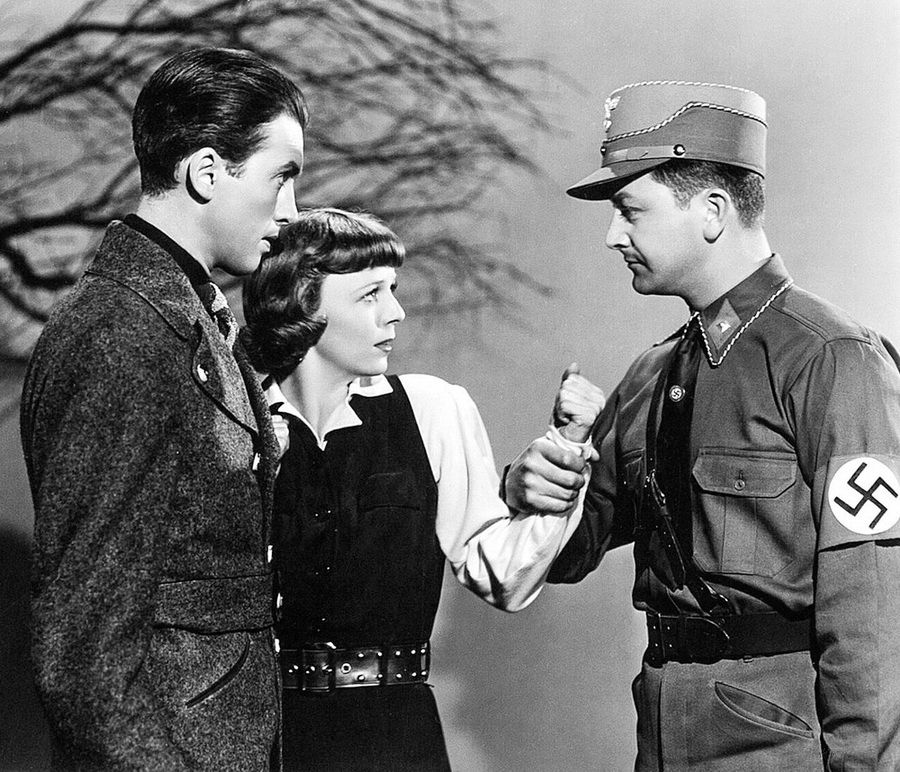
Frank Borzage, like the director of this afternoon’s second feature, Max Ophuls, was an uncompromising romanticist. Borzage, the master of sentimental cinema, imbued his finest films, Seventh Heaven (1927), The River (1929), A Farewell to Arms (1932), A Man’s Castle (1933), Little Man, What Now? (1934), History Is Made At Night (1937), Three Comrades (1938) and The Mortal Storm with a poetic sense of tragedy, often centering on the plight of a pair of lovers against insurmountable odds, often ending in death. An interesting book on Borzage is most appropriately entitled “Souls Made Great Through Love and Adversity”, a theme befitting all of Borzage’s best work. Like Ophuls, Borzage was noted for his fluid use of camera movements, though never to the degree Ophuls employed, particularly in Letter From an Unknown Woman. The Mortal Storm has made pertinent camera tracking shots, especially of Professor Roth going into his classroom. And the closing sequence, with the camera representing stepson Robert Stack’s memory tour of happier times in the Roth household, is unforgettable (and morally similar to a shot at the end of Letter From an Unknown Woman).
The Mortal Storm takes place in Germany during 1933–the film begins on January 30th, Professor Roth’s birthday and also the day Hitler was declared Chancellor of Germany. The opening scene of The Mortal Storm are as joyous and optimistic as anything in cinema history, with a seemingly perfect little family celebrating both Professor Roth’s birthday and the promise of a glorious future. But the ascension of Hitler initiates a division in the family and its friends, as it obviously did in Germany itself. By the end of the film,t he deaths of the two most beloved members of the Roth family, the Professor and Freya, have reduced that supremely happy household into an empty shell. One of Borzage’s strongest qualities was his ability to cover the full range of emotions realistically, and The Mortal Storm transcends a particularly wide emotional sphere.
In Margaret Sullavan and James Stewart, Borzage had an ideal romantic team, who made four films together. Next Time We Love (1936) and The Shopworn Angel (1938) were the lesser pair, though, especially in the case of the latter, still major films of merit, while The Shop Around the Corner and The Mortal Storm (both 1940–what a great year for movies!) were masterpieces of the romantic cinema. Sullavan, who also appeared in Borzage’s Little Man, What Now? and Three Comrades, was a unique actress blessed with an inmitably warm voice and vocal inflections, a particular asset to the poetry of Borzage’s romantic melodramas. She brought out a special transcendental quality in James Stewart’s acting, notably in The Shop Around the Corner and The Mortal Storm, that Stewart could never muster with other actresses, particularly in a non-Borzage remake (Henry King directed) of a Borzage landmark, Seventh Heaven (1938). Margaret Sullavan was only nominated for one Oscar, for Three Comrades, but undeservedly lost out to Bette Davis in Jezebel in 1938. The Mortal Storm, in this writer’s opinion, one of the great films in cinema history, was not even nominated for a single Oscar back in 1940!
Notes by Jaan Salk

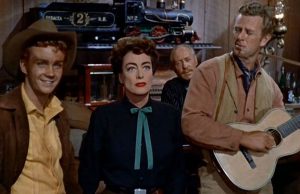
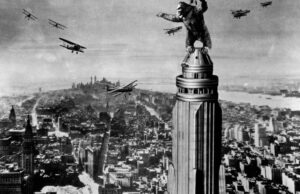
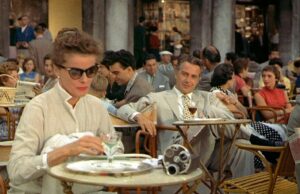






Leave a Reply